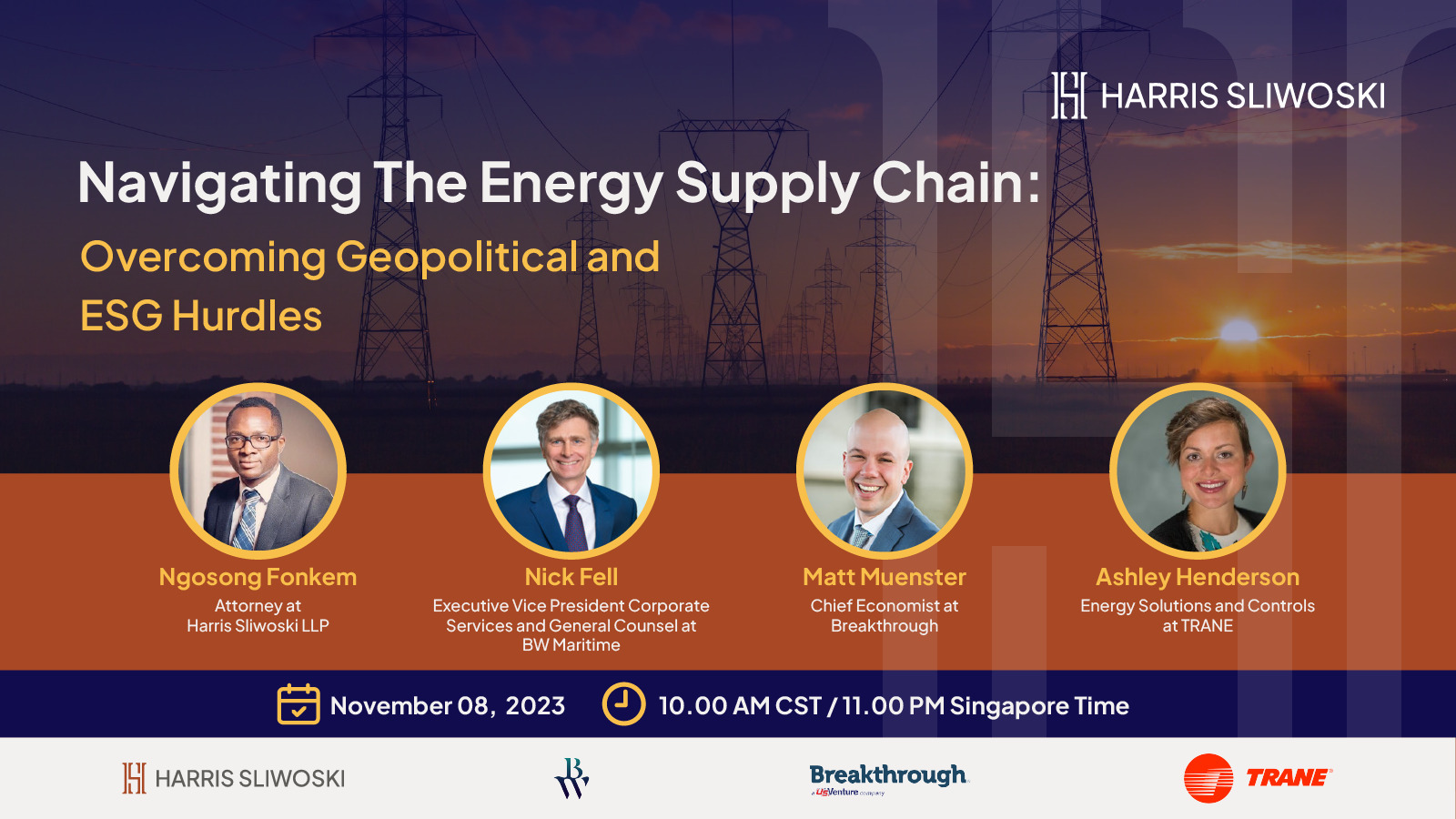
Energy geopolitics have always impacted supply chain logistics and will likely continue to do so because energy is a fundamental input for economic activities. Yet, geopolitics are just one of many forces disrupting energy supply chains. They remain under stress from the pandemic and its subsequent recovery, supply constraints, labor shortages, and climate change.
Moving forward, the government authorities in the United States and other countries have continued to develop new legal restrictions and obligations to compel or limit company action geared towards the political priorities associated with those developments – including the advancement of protectionist and industrial policies – which have further added new disruption and are having a compound effect on already beleaguered supply chains. In many cases, these developments have substantially disrupted business and caused expensive compliance headaches.
This webinar, organized by Harris Sliwoski and the leading shipping maritime shipping company in Asia, BW Maritime Shipping together with Wisconsin based transportation management technology company, Breakthrough Fuel and Trane, a global air conditioning systems and services, will focus on how global transport of fuel indicate larger global supply chain trends and how these trends may also provide new business opportunities for certain industries.
By the end of this presentation, the audience should have an foundational understanding of the following key areas:
- Energy flows as a signal of larger supply chain trends.
- Trade restrictions, economic sanctions, and countersanctions,
- Green Trade
Speakers:
Ngosong Fonkem (Attorney/Harris Bricken Sliwoski LLP)
Nick Fell (Executive Vice President, Corporate Services and General Counsel at BW Maritime)
Matt Muenster (Chief Economist at Breakthrough)
Ashley Henderson (Energy Solutions and Controls at Trane)









